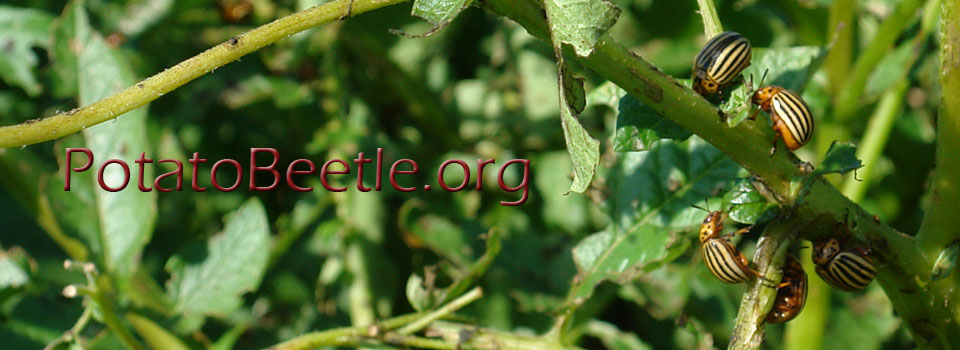Skuhrovec, J., O. Douda, M. Zouhar, M. Maňasová, M. Božik, and P. Klouček. Journal of Economic Entomology, toz279, https://doi.org/10.1093/jee/toz279
The Colorado potato beetle ranks as one of the most important potato pests, mainly due to its high feeding rate during all developmental stages, particularly third and fourth larval instar, and high fecundity. The effect of essential oil (EO) from anise (Pimpinella anisum L. [Apiales: Apiaceae]) prepared as conventional and encapsulated (EN) formulations on the mortality and antifeedant responses of young larvae of Colorado potato beetles was studied to evaluate the insecticidal and antifeedant effects of five concentrations of this EO and to assess the persistence of both formulations on potato plants. The EN formulation had a significantly higher residual amount compared with that of the conventionally formulated EO. Significantly different values of LC50 and LC90 (ppm) were established for the EO (LC50 = 1,700 and LC90 = 9500) and EN (LC50 = 3,100 and LC90 = 14,300) formulations. The effects of both P. anisum formulations (EO and EN) applied topically to Leptinotarsa decemlineata (Say) (Coleoptera: Chrysomelidae) larvae were distinctly different from those observed with the contact treatment. At the highest concentration of 20,000 ppm, the mortality of the second instars of the L. decemlineata larvae did not exceed 25%. On the other hand, both tested formulations of P. anisum were highly effective when administered orally. The encapsulated EO formulation achieved a distinctly higher biological activity. Our results confirm that the EO from P. anisum, especially the encapsulated formulation, has high insecticidal properties that may lead to the development of new organic products for the control of Colorado potato beetles.
